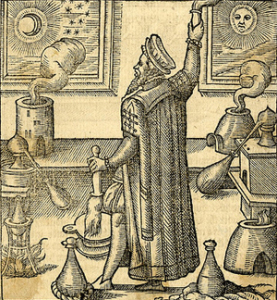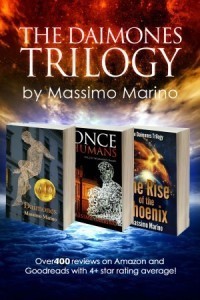Alchemist of Words
 How many of you have confessed to a stranger that you are a writer only to be told that they too are planning to take a month off to write a book? Yet, can any of us imagine saying to a brain surgeon that we’d take a month off to learn to operate on the brain? (One writer friend claims to have said exactly that to a doctor after the doctor said he was going to write a book during a two-week holiday.)
How many of you have confessed to a stranger that you are a writer only to be told that they too are planning to take a month off to write a book? Yet, can any of us imagine saying to a brain surgeon that we’d take a month off to learn to operate on the brain? (One writer friend claims to have said exactly that to a doctor after the doctor said he was going to write a book during a two-week holiday.)
Those who don’t write often think writing is easy, something to be whipped out on whim. You put words on paper in a recognizable format making sentences with a subject, verb, a direct object, maybe a preposition here or there. Add a period, a question mark or more rarely an exclamation point. Then after the first sentence, there’s another and another, until you have a paragraph, a page, a story, a novel. It’s simple, it’s magic, right?
Good writing does not appear like magic. It takes work, discipline, commitment. As writers we are like those alchemist using all known elements and try them in different compounds, with the hope to turn lead into gold.
It is not any noun or verb committed to paper that turns our work from a jingle into an opera, it is which noun and which verb is the best. It is building a sentence, a paragraph, a story, a novel as deliberately as carpenters construct a house.
Words aren’t just squiggly lines on paper. They have power to those that can decipher them. Words carry weight, give color, make music. Words can say things that aren’t there, reveal secrets, tell truths or lie.
We, as writers, choose which words to give the power to conjure our thoughts and visions. Sometimes they flow out of fingertips faster than we can type. Other times they stay locked in boxes as we search frantically for the key. One writer I know, when she can’t find the right word puts in a wrong one and marks it with color. She confessed that she will get up in the middle of the night if she wakes knowing the word that escaped her earlier to fire up the computer and scroll down until she finds the color and substitutes the better word. She says she needs to commit to a word. To know that it is that word and no other, that anything other than the final word she has chosen will weaken her story.
Writers go over each sentence to decide whether to change a word here or there, rearrange the order, take out or add a detail.
When we start as writers we are often happy just to get the words on paper. As we learn our craft, we then begin to control our finished projects by realising that we can do without that adjective, we are better to show that action rather than tell about it, we, at times, can say more by not saying it at all, and hide things for the readers to discover themselves. At this point, our writing although perhaps still inspired, becomes polished AND inspired. We become more confident that we have truly nailed that phrase rather than doubt our ability. We also develop an instinct of when, where and how our writing can be better.
Writing calls for deliberate and constant decisions not just on what our characters do, say, look like, and feel, but the language we use to describe all this. If a journey starts with a single step, a story starts with a word.
Is the color to describe the flower lilac, mauve, lavender, purple? Does the child run, lope, gallop, stumble across the yard? Is anger shown by throwing a vase or dropping it on purpose? Are her eyes guarded, open, laughing, tear-filled? Does he stare, gaze, or glare? Whenever we choose one over another we are creating a different formula, a different alchemy, and sometimes a common metal starts to glitter.
Then, when we have the right words in the right sequences, we further commit ourselves to stacking them together in a way that pulls our readers along with us.
For example think of the following four sentences:
· She was sitting on a chair.
· She sat on the chair.
· She sat on her chair.
· She was rooted to her chair.
The last sentence gives a much stronger image to the reader than the rather mundane first one. Yet, there may be a time when we want the mundane. The difference is when we consciously select the right words to create the right tone. That is when we sculpt with words, we become wordsmiths, and word alchemists.
I take pride to tell people I am a writer of three books now, and writing a fourth, but now I’m seriously thinking when someone asks me what I do, I will say “I’m a word alchemist.”
Massimo Marino is a scientist envisioning science fiction. He spent years at CERN and The Lawrence Berkeley Lab followed by lead positions with Apple, Inc. and the World Economic Forum. He is also co-founder of “Squares on Blue”, a Big Data Analytics service company.
Massimo currently lives in France and crosses the border with Switzerland multiple times daily, although he is no smuggler.
As a scientist writing science fiction, he went from smashing particles at accelerators at SLAC and CERN to smashing words on a computer screen.
He’s the author of multi-awarded Daimones Trilogy.
His novels have received the Seal of Excellency from both AwesomeIndies.net and IndiePENdents.org
• 2012 PRG Reviewer’s Choice Award Winner in Science Fiction
• 2013 Hall of Fame – Best in Science Fiction, Quality Reads UK Book Club
• 2013 PRG Reviewer’s Choice Award Winner in Science Fiction Series
• 2014 Finalist – Science Fiction – Indie Excellence Awards L.A.
• 2014 Award Winner – Science Fiction Honorable Mention – Readers’ Favorite Annual Awards
His novels are available from Amazon, Barnes & Noble (Nook), iTunes Apple Store, and many other retailers around the world.
Join his mailing list for new releases, or follow him on Facebook, Google+, and Twitter.
The post Alchemist of Words appeared first on § Author Massimo Marino.




